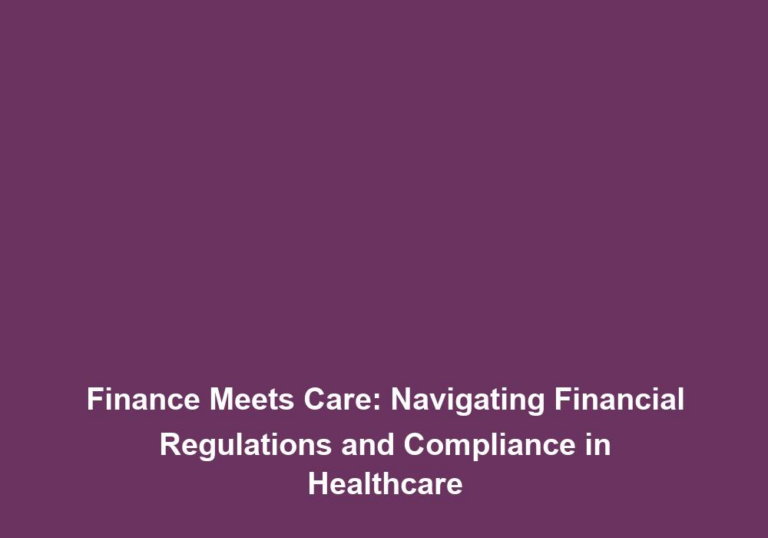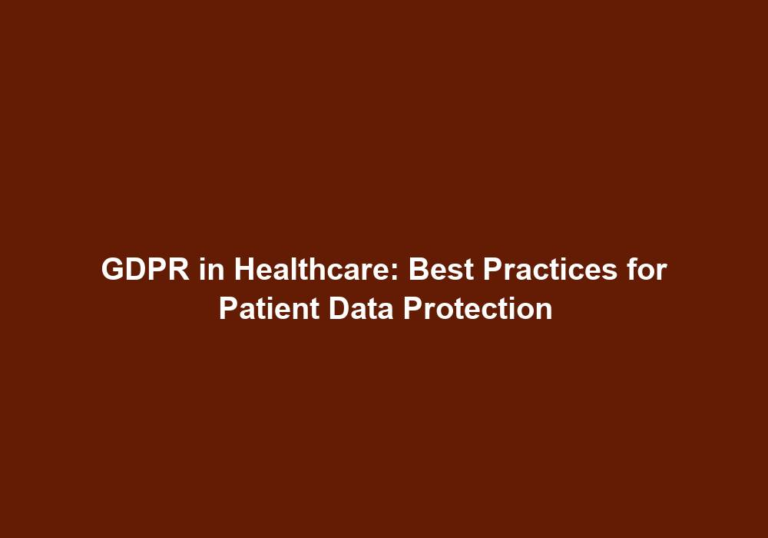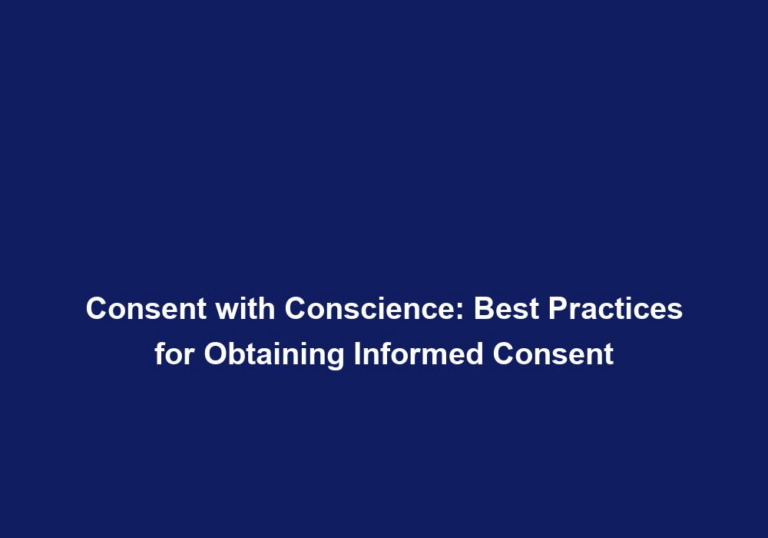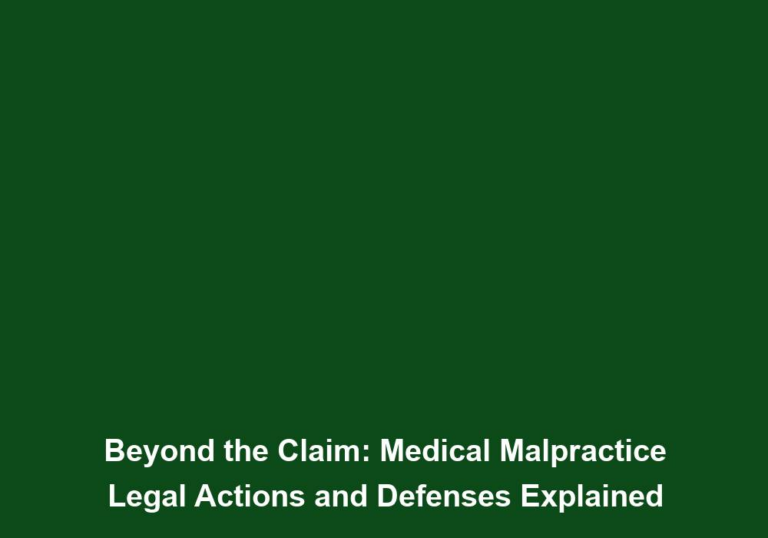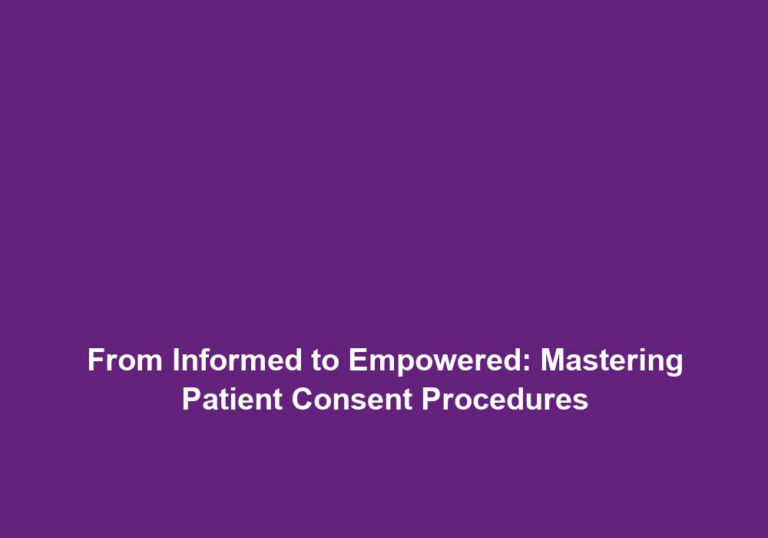Safeguarding Healthcare: The Role of Compliance and Regulations
In today’s rapidly evolving healthcare industry, safeguarding patient well-being and ensuring the delivery of high-quality care are paramount. Compliance with regulations plays a crucial role in achieving these goals. This article will shed light on the significance of compliance and regulations in healthcare and explore their role in safeguarding the industry.
The Importance of Compliance
Compliance refers to the adherence to rules, standards, and regulations set forth by regulatory bodies, such as government agencies and professional organizations. In the healthcare sector, compliance is essential to maintain ethical practices, protect patient rights, and promote safety. It ensures that healthcare providers operate within defined boundaries and uphold the principles of integrity and professionalism.
Ensuring Ethical Practices
Compliance with ethical guidelines is vital to uphold the principles of integrity and professionalism in healthcare. Healthcare providers must adhere to ethical standards, such as informed consent, confidentiality, and respect for patient autonomy. By following ethical practices, healthcare professionals build trust with patients and establish a foundation for effective care delivery. This includes obtaining informed consent from patients before any medical procedure, ensuring confidentiality of patient information, and respecting their autonomy in making decisions about their own healthcare.
Protecting Patient Rights
Compliance with regulations is indispensable in protecting the rights of patients. These regulations often include provisions related to privacy, data security, and informed decision-making. For instance, the Health Insurance Portability and Accountability Act (HIPAA) in the United States safeguards patient privacy by establishing strict guidelines on the handling and disclosure of protected health information. Compliance with such regulations ensures that patients’ personal and medical information remains confidential and secure. It also ensures that patients have the necessary information to make informed decisions about their healthcare and have control over their own medical records.
Enhancing Patient Safety
Compliance with safety regulations plays a critical role in minimizing risks and promoting patient safety. Regulatory bodies, such as the Food and Drug Administration (FDA), enforce safety standards for medical devices and pharmaceutical products. Healthcare providers must comply with these regulations to ensure that patients receive safe and effective treatments. By adhering to safety guidelines, healthcare organizations can prevent harm, reduce medical errors, and enhance patient outcomes. This includes ensuring proper sterilization of medical equipment, following medication safety protocols, and implementing infection control measures to prevent the spread of diseases.
The Role of Regulations
Regulations provide a framework for healthcare organizations to operate within defined boundaries and ensure accountability. They serve as a guide for healthcare providers, helping them navigate complex and ever-changing industry requirements.
Standardizing Processes
Regulations often standardize processes and procedures in healthcare. By establishing uniform guidelines, regulations ensure consistency in care delivery, reducing variation and promoting quality. For instance, the Centers for Medicare and Medicaid Services (CMS) in the United States sets regulations that dictate the conditions of participation for healthcare facilities, such as hospitals and nursing homes. Compliance with these regulations ensures that care is provided uniformly across different facilities, fostering equitable access to quality healthcare. It also helps in streamlining operations and enhancing efficiency in healthcare organizations.
Promoting Best Practices
Regulations often incorporate evidence-based best practices, enabling healthcare providers to deliver high-quality care. These practices are established through rigorous research and are backed by scientific evidence. Compliance with regulations ensures that healthcare providers stay updated with the latest advancements and adhere to proven methodologies. This promotes continuous improvement in care delivery and enhances patient outcomes. It includes implementing guidelines for preventive care, using evidence-based treatment protocols, and adopting quality improvement initiatives to enhance patient safety and satisfaction.
Preventing Fraud and Abuse
Regulations also play a crucial role in preventing fraud and abuse within the healthcare industry. By establishing guidelines for billing and documentation, regulatory bodies aim to ensure that healthcare services are accurately represented and appropriately reimbursed. Compliance with these regulations helps in safeguarding against fraudulent activities, such as upcoding or submitting false claims. Additionally, regulations also combat unethical practices, such as kickbacks or unnecessary procedures, ensuring that resources are utilized for genuine patient needs. This helps in maintaining the integrity of the healthcare system and ensures that healthcare resources are used efficiently.
Challenges and Future Trends
While the role of compliance and regulations in safeguarding healthcare is undeniable, there are challenges and future trends worth considering.
Evolving Regulatory Landscape
The healthcare industry operates in a dynamic environment, and regulatory requirements constantly evolve to address emerging issues. Healthcare organizations must stay updated with regulatory changes and adapt their practices accordingly. Compliance departments play a crucial role in monitoring and interpreting regulations to ensure timely adherence and mitigate risks. It is important for healthcare organizations to have robust compliance programs that can quickly adapt to changing regulations and promote a culture of compliance throughout the organization.
Technological Advancements
Technology plays a significant role in enabling compliance and streamlining regulatory processes. Electronic health records (EHRs), for example, facilitate efficient documentation and data management, ensuring compliance with regulations related to record-keeping and privacy. Moreover, emerging technologies like blockchain hold the potential to revolutionize compliance by enhancing data security, traceability, and transparency. Healthcare organizations should embrace technological advancements to improve compliance processes and enhance patient safety and privacy.
Global Harmonization
In the era of interconnected healthcare systems, global harmonization of regulations is gaining importance. Harmonizing regulations across countries can facilitate the exchange of medical information, promote collaboration, and streamline international healthcare operations. However, achieving global harmonization poses challenges due to differences in legal frameworks, cultural norms, and healthcare systems. International collaboration and standardization efforts are needed to overcome these challenges and ensure consistent and effective regulation of healthcare across borders.
In conclusion, compliance and regulations play a vital role in safeguarding healthcare. By ensuring ethical practices, protecting patient rights, and promoting safety, compliance establishes a strong foundation for the delivery of high-quality care. Regulations provide guidance, standardize processes, and prevent fraud and abuse. However, the ever-evolving regulatory landscape and emerging trends necessitate continuous adaptation and technological advancements to meet the evolving needs of the healthcare industry. Healthcare organizations must prioritize compliance and stay proactive in addressing regulatory changes to ensure the highest standards of patient care and safety.


